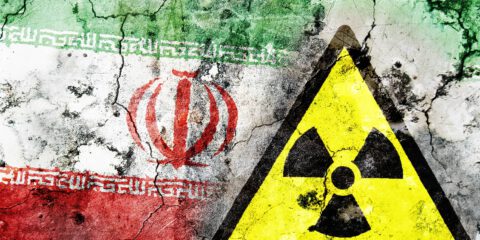Israel is facing a series of critical decisions in the national security arena, and the necessary condition for dealing with those challenges is maintaining maximum national cohesion. Therefore, lowering the flames in the current public debates and reaching a compromise is imperative.
The Jerusalem Institute for Strategy and Security (JISS), which we head, has repeatedly offered a policy agenda to the governments of Israel in recent years, including a series of recommendations.
The first recommendation has always emphasized the need for maintaining maximum national cohesion. That is imperative for a nation facing a hostile strategic environment. Recent events highlight the importance of national cohesion even more.
Israel is facing a critical point of decision, especially regarding Iran, a determined enemy striving for nuclear weapons, and in the face of its proxies, which are spread out along Israel’s borders, ready for military action against the Jewish State. Now is not the time to deepen Israeli society’s divisions and push parts of the public into dangerous alienation.
The need for social cohesion has been known to decision-makers for years. The political program for the 36th Israeli government that JISS published in 2021 included the statement: “National cohesion is a necessary condition for Israel’s resilience in the difficult security tests it faces.”
To this must also be added the challenges of governance at home, the need to correctly navigate the ship of the Israeli economy within the global economy, and the need to maintain bridges with Diaspora Jewry. How the disputes in Israel are seen by its enemies could harm Israel’s deterrent power. A society ridden by conflict seems weak. We already hear sounds of jubilation in Tehran and other countries in the region. At the same time, the domestic disputes also impact Israel’s relations with its friends and partners in the region and the international arena.
The severity of the current crisis cannot be understated. The escalation we are witnessing in the ideological and political disputes at home, first and foremost around the question of changes in the legal system and also around issues impinging on relations between religion and state, is hitting Israel at the worst time. Erosion in national cohesion – even if it is a byproduct of a legitimate desire to correct deficiencies in the existing order – carries with it the potential for damage to Israel’s security and political interests.
The danger Israel faces stems from a combination of several factors: giving dominance to divisions over unity; the trend toward the erosion in the support for state organs, which embody the statist legitimacy and cohesion; and the severity of the immediate security challenges ahead, chiefly the need to prevent Iran from obtaining nuclear weapons.
Projecting a credible military threat requires Israel’s enemies to perceive the country as united and determined. Unfortunately, that is not the impression created under the current circumstances.
Moreover, the escalation in the discourse among the disputing parties could damage relations with the American administration and the ability to adequately plan a response to the Iranian challenge and the expected challenges in the Palestinian arena. Additionally, the expressions of concern abroad, especially among American Jewry, are not helpful.
Under these circumstances, the leadership in Israel – coalition and opposition – must act to calm the spirits, change the dynamic of public discourse, and establish a practical framework for genuine dialogue, one which strives to create as broad a base of agreement as possible for needed legal reform. The initiative of the state’s president, Yitzhak Herzog, offers a framework for constructive dialogue and an outline for a potential compromise on the debated questions.
Despite ideological preferences and sectoral interests, Israel’s leaders must send an unambiguous message regarding the seriousness of the hour and the need to lower the flames of disputes within the public sphere. There are certain times, such as the waiting period before the Six Day War, when common national challenges must override the nation’s divisions.
National cohesion is more important than winning political arguments.
JISS Policy Papers are published through the generosity of the Greg Rosshandler Family.
Photo: IMAGO / ZUMA Wire / Eyal Warshavsky











 - בניית אתרים
- בניית אתרים